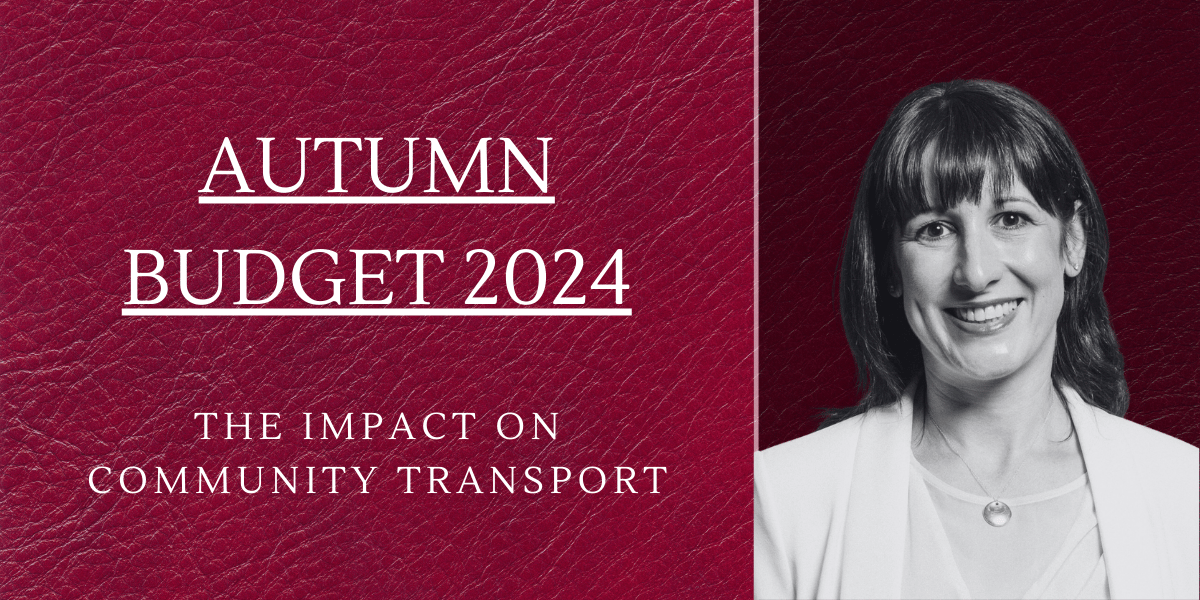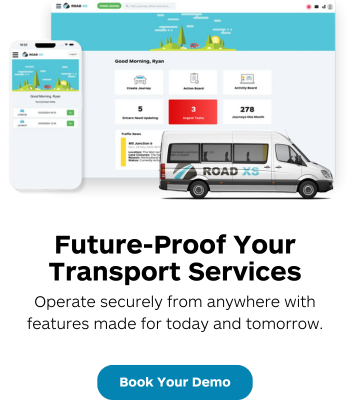The Autumn Budget 2024 introduces critical policy changes that directly impact community transport operators across the UK. Operators are encouraged to adapt to a shifting financial and operational landscape from fuel tax adjustments to digital innovation incentives.
Here’s an in-depth look at how these changes will shape the future of community transport.
Rising Fuel Costs and Operating Expenses
One of the most immediate impacts of the budget will be on fuel and operating costs. With fuel taxes adjusted to reflect inflation, community transport providers may find their operating expenses significantly higher. This change will likely impact fleets reliant on petrol or diesel, leading operators to consider alternative strategies to maintain affordability.
Impact on Operators:
- Fare Adjustments: Operators might need to raise fares to offset rising costs, which could potentially affect affordability for users, especially vulnerable passengers.
- Route Optimisation: Budget constraints could push for more efficient route planning, focusing on high-demand areas and reducing low-traffic journeys.
- Investment in Alternative Vehicles: Rising fuel costs could speed up the switch to electric vehicles, aligning with the government’s environmental goals.
Funding for Cleaner, Greener Transport Initiatives
The budget emphasises support for eco-friendly transport options. New grants and subsidies are available for low-emission vehicle adoption, presenting a pivotal opportunity for community transport providers to transition to electric vehicles (EVs). This move would decrease dependence on fluctuating fuel prices while aligning with the broader government climate strategy.
Impact on Operators:
- Reduced Long-Term Fuel Costs: EVs and hybrid vehicles are cost-effective long-term, particularly for operators with predictable, frequent routes.
- Eligibility for Green Grants: Operators should explore funding options and incentives designated explicitly for the transport sector, such as grants for EV charging infrastructure or tax incentives on low-emission vehicles.
- Positive Community Perception: Sustainable practices can enhance public relations, showcasing operators as environmentally conscious service providers.
Investment in Digital Transformation
The Autumn Budget 2024 strongly emphasizes digital infrastructure, with grants designed to modernise operations through technology. This allocation aligns well with the needs of community transport operators considering digital booking systems, automated route planning, or real-time vehicle tracking. Digital investments can reduce administrative burden, enhance service accuracy, and improve efficiency.
Impact on Operators:
- Improved Booking Systems: Digital solutions make it easier for users to book trips in advance, which is particularly beneficial for elderly passengers or those with mobility challenges.
- Enhanced Route Optimisation: Using digital planning tools, operators can dynamically adapt routes based on demand, reducing empty seats and maximising fuel efficiency.
- Cost Savings on Administration: Automation decreases manual work for scheduling and routing, allowing staff to focus on service quality rather than routine tasks.
Labour and Skills Development Initiatives
The budget’s investment in workforce development aims to address skills shortages across various sectors, including transportation. By introducing subsidies for training programs, the government is helping create a pipeline of skilled workers in areas such as vehicle maintenance, driver certification, and customer service.
Impact on Operators:
- Reduced Training Costs: Operators can access subsidized staff training, making it easier to meet certification requirements and improve customer service.
- Enhanced Service Standards: Skilled employees mean better service for passengers, including those with specific needs like assisted boarding.
- Increased Operational Resilience: Well-trained staff contribute to a smoother operational workflow and help ensure safety and regulatory standards compliance.
Community and Local Government Funding
The budget also includes substantial funding allocated to local councils, which may indirectly benefit community transport providers. Local councils may now have better resources to partner with transport operators to bridge mobility gaps within underserved areas, particularly in rural regions or for vulnerable populations.
Impact on Operators:
- Opportunities for Public-Private Partnerships: With council budgets expanded, there is potential for new collaborations between community transport operators and local governments.
- Improved Access to Underfunded Regions: Operators could receive funding to extend routes or add stops in rural areas, reaching underserved populations and addressing local transport inequities.
- Support for Community-Based Initiatives: Councils may now sponsor programs that align with transport operators’ services, like special services for the elderly or disabled, facilitating broader accessibility within communities.
Summary: Seizing Opportunities Amongst Challenges
The Autumn Budget 2024 is a mix of financial challenges and investment opportunities for community transport operators.
While rising fuel costs and inflation will require strategic adjustments, the budget’s focus on green initiatives, digitalisation, workforce development, and local partnerships offers a promising pathway for operators to modernise and thrive.
Operators should seek relevant grants, incentives, and collaborative opportunities with local councils to maximise these benefits. By staying adaptable and forward-thinking, community transport operators can turn these budget shifts into long-term growth and enhanced service quality.


